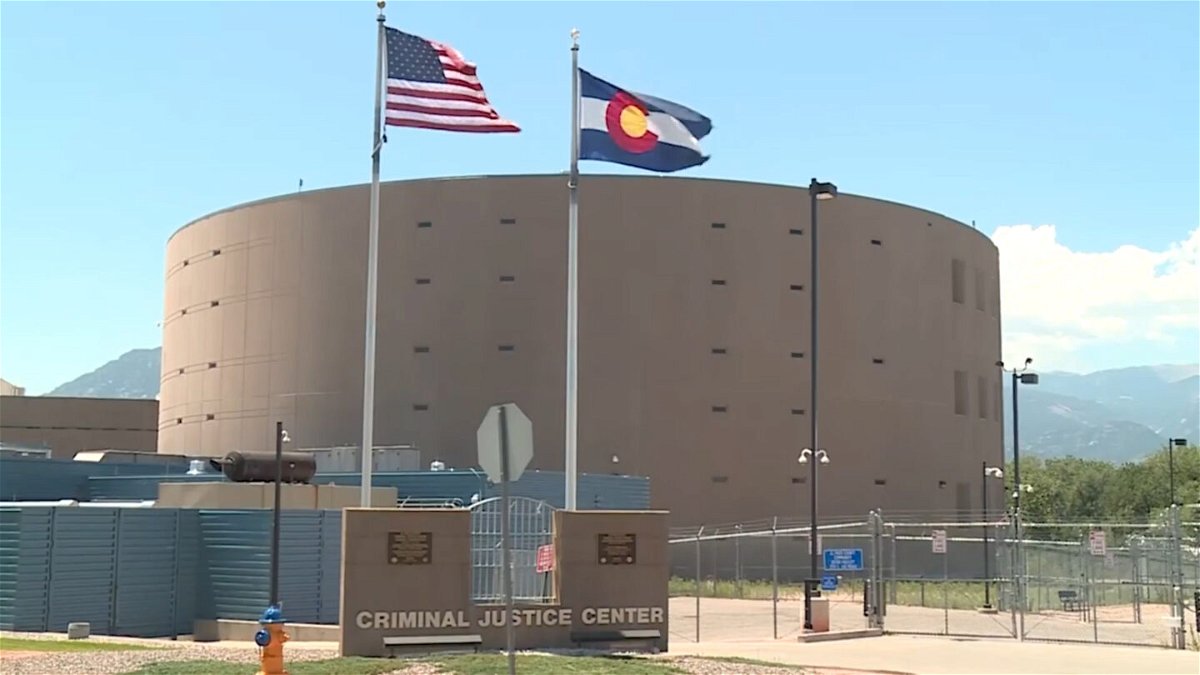El Paso County Jail now required to report why inmates are placed in restrictive housing

COLORADO SPRINGS, Colo. (KRDO) -- Following the passage of House Bill 21-1211, all local jails in Colorado are now required to report the reason why inmates are placed in restrictive housing.
Restrictive housing means inmates are involuntarily confined in their cells for 22 hours a day or more and have very limited out-of-cell time, movement, or meaningful human interaction. They're either confined there because they are a danger to themselves or others, or because of a disciplinary or administrative reason.
At any given time, there are roughly 30 inmates at the El Paso County Jail placed in restrictive housing. The sheriff's office says a handful of them are a danger to themselves or others because of mental health conditions. Many of those inmates require more resources for care than the jail is able to accommodate, but the State Mental Health Institute at Pueblo is at capacity with an extensive waiting list for evaluation and treatment.
Starting on January 1, 2022, each jail needs to report information to the state quarterly about the inmates placed in restrictive housing. The information will be anonymous and must include the following pieces of data: self-identified race, ethnicity, gender, age, how long the inmate is on restrictive housing, why they were placed in restrictive housing, whether the inmate has a certain type of mental health condition, whether the inmate has engaged in self-harm while in custody, and more.
The El Paso County Sheriff's Office said they were given about six months' worth of notice before being required to report that information. EPSO Chief of Staff Janet Huffor said it wasn't enough time. Two other recently passed bills require them to report different subsets of data.
"It's more of an overhaul of all of the data systems, both on the patrol side and on the jail side, to be able to capture and then keep all of this data, so that's why six months isn't enough time," Huffor said, adding that they need to also be able to pull medical records to comply with these new requirements.
The data EPSO reports to the state this quarter will not perfectly comply with the new requirements, but they are working on getting their systems together in a way that will allow them to comply perfectly moving forward.
The next big deadline the El Paso County Sheriff's Office and all local Colorado jails will face under this new legislation is July 1, 2022. EPSO said this deadline will be much more difficult to meet as a lot of changes will be required.
One of the largest changes required is that if an inmate needs to be placed in restrictive housing, a judge has to issue a court order every seven days. EPSO said there isn't a system in place right now in the court system to make this a possibility. Since many of the inmates placed in restrictive housing are a danger to themselves or others, Huffor said it would be very difficult to transport inmates with those concerns to the courthouse.
Another change required under the new legislation forces local jails to find a way to give inmates in restrictive housing more time outdoors in a recreation yard. To comply, Huffor said the jail may have to undergo construction because there aren't enough recreation yards in their facility to accommodate giving more inmates time outdoors while still keeping them away from others.
One of the biggest concerns held by EPSO is the new requirement that deputies manning jail wards will also be required by July to check on every inmate in restrictive housing every 15 minutes and keep a log of their activities. Typically, one deputy staffs an entire ward, which can hold roughly 80 inmates. Deputies are already required to check on every inmate not placed in restrictive housing every 30 minutes. This new requirement doubles the number of checks required on inmates in restrictive housing.
"It is an absolute shame that it's going to tie a deputy behind a desk, doing administrative work, instead of walking around and talking to the inmates and having positive interactions with the inmates, which is what the state legislature wants us to do," Huffor said, adding that this type of required record keeping will likely also compromise the safety of other inmates and the deputies.
There are many decisions left to be made at EPSO about how to comply with this upcoming July deadline. While there is no penalty associated with missing the deadline, it does open the sheriff's office up to liability and lawsuits if they aren't able to comply with the new requirements by the deadline.




